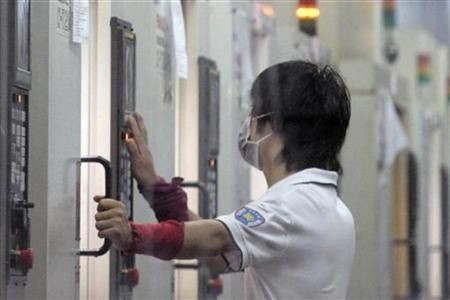Why China Is Compounding The Woes Of A Sagging US Job Market

The influx of millions of conscientious and low-cost Chinese graduates in the global job market could exacerbate the woes of a U.S. job market that is already staggering from high unemployment.
China, which delivers 6 million fresh graduates every year, is expected to produce 200 million skilled young people by 2030, according to estimates from the World Bank. Young Chinese are compelled to elbow for a position in the global labor force because China's own job market remains stagnant and will soon start contracting, data suggest.
The crimp in China's labor market arises as a result of a more fundamental structural problem -- a mismatch between the skills that graduates and employees have and the requirements of jobs that are available in the marketplace.
A subsequent increase in the supply of fresh skills worldwide poses a threat to employment and wage growth in the U.S. Since 2000, the year before former President Clinton permitted China's entry into the World Trade Organization, the U.S. manufacturing sector -- a key indicator of economic and job growth -- had already dropped 5.4 million jobs.
Rising wages in China are likely to pose another problem for U.S. investors by swallowing profit margins and curbing returns on U.S. investments in China.
Chinese manufacturing wages rose a whopping 20.1 percent last year. Manufacturing wages in China's top-notch companies are currently $3.40 to $3.50 per hour, a percent increase from $1 an hour just a few years before. Even as manufacturing salaries climbed 46 percent since 2008, the cost of U.S. imports from China has started to rise. The extra cost will put a downward pressure on domestic U.S. consumer spending, which accounts for about 70 percent of the country's GDP.
Labor costs in the manufacturing sector have jumped 14.8 percent every year during the past two decades, Baizhu Chen, an economist at the University of Southern California, stated in a report.
The availability of cheap Chinese labor and rising wages leave U.S. manufacturers wondering about whether they should pass the buck to U.S. consumers or resign themselves to the prospect of accepting lower profits.
Consulting firm Accenture takes a different view on the situation. U.S. manufacturers with a large footprint in China will be able to shoulder wage increases of as much as 30 percent without much trouble, the firm said in a report published earlier this year.
Meanwhile, the Chinese parliament has expressed concern about the shortage of skills required in Chinese manufacturing jobs, even as fresh graduates and workers drift away from China to look for work elsewhere.
© Copyright IBTimes 2024. All rights reserved.




















